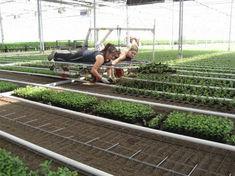
Growers have lost an average of £140,000 so far this year because of a shortage of workers.
The National Farmers’ Union (NFU) is calling on government to change its policy of ending the Seasonal Agricultural Workers Scheme (SAWS) in 2010 after its 2008 seasonal labour survey revealed the startling figure.
The survey confirms what has been reported on freshinfo in recent months: that the labour-intensive sectors of horticulture have struggled to source sufficient seasonal workers this year, with two-thirds of growers who took part saying they lost money as a direct result of labour shortages. This factor, plus additional costs incurred dealing with labour problems, meant growers’ losses are already £30,000 more than in 2007, with the season yet to finish.
Richard Hirst, chairman of the NFU’s horticulture board, said: “These results back up what we have been saying all year - that there is insufficient seasonal labour for horticulture. The Home Office must now listen and, in the short term, expand the number of SAWS permits and change its policy on the ending of SAWS in 2010.”
The NFU’s survey results follow the publication last week (reported on freshinfo) of a paper by Liverpool University for the government’s Migration Advisory Committee, which recommended the introduction of a renewed SAWS scheme.
The study found that growers are heavily reliant on seasonal migrant workers, but are finding it increasingly difficult to source this type of labour.
The report concluded: “Immigration has undoubtedly helped UK companies remain competitive, but only over the short- to medium-term. UK farmers have always had a need for seasonal migrant workers and it is difficult to see this need ever disappearing. If demand remains, and if the supply of UK workers remains low, then temporary migrant worker schemes may be the only answer, even in the long-run.”
Crucially, the report found there was no need for such schemes to be geographically restricted: “Indeed, developing two-way educational, cultural and work-based links between UK employers, universities, and workers/students outside the current EU27 is likely to bring a number of advantages,” it said.